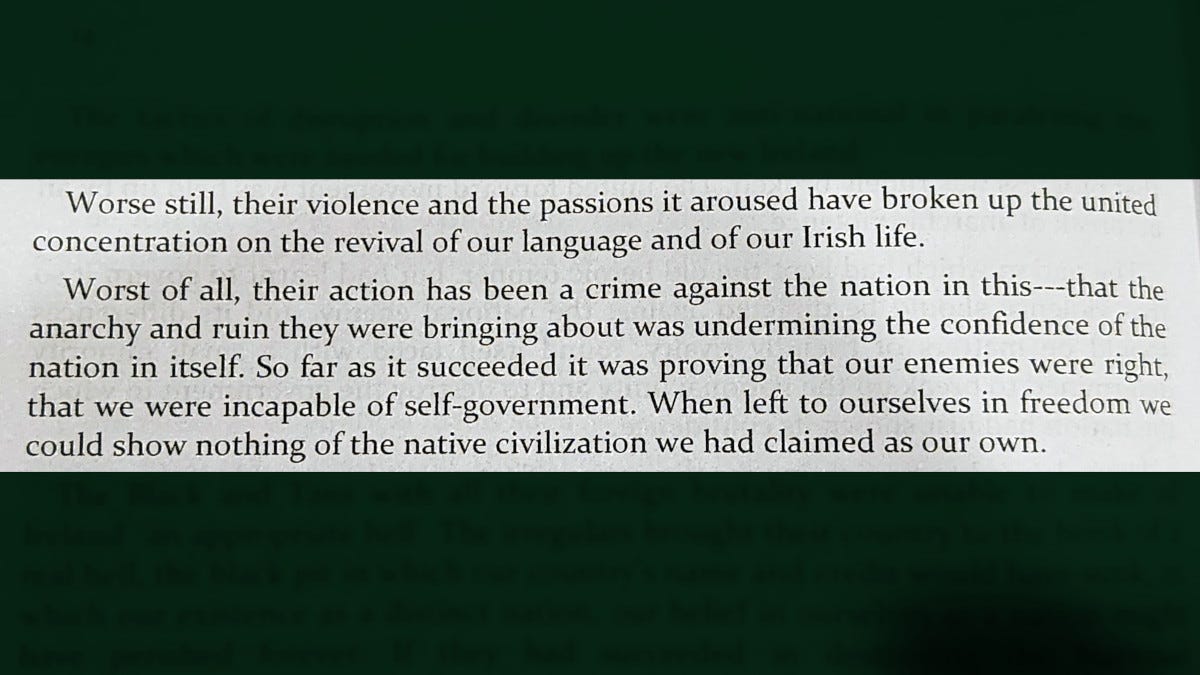Ballots, not battles
On the Irish Free State, proving enemies wrong, and the peaceful achievement of imperfect ends in politics and freedom
In 1922, Ireland was in the midst of liberating itself from British colonial rule. The Irish Free State had established independence from the UK on paper, but a civil war was still to take a year and hundreds of lives before a true state could be recognized.
■ One of the harshest aspects to the civil war was that it pitted two groups who effectively wanted the same thing (a free Irish republic) against one another -- because some thought an incomplete freedom from the UK was the most that could be achieved at the time, while others opposed the treaty on the grounds of its incompleteness. The resulting violence didn't hasten Ireland's freedom, but it did scar the nation.
■ Of those instigating the violence, the youthful general and political leader Michael Collins wrote, "Worst of all, their action has been a crime against the nation in this -- that the anarchy and ruin they were bringing about was undermining the confidence of the nation in itself. So far as it succeeded it was proving that our enemies were right, that we were incapable of self-government. When left to ourselves in freedom we could show nothing of the native civilization we had claimed as our own."
■ Collins himself would be assassinated in the fighting, his life cut far short. Born in 1890, Collins easily should have lived to see the Republic of Ireland Act enter full force in 1949.
■ But that is what interior political violence does: It deprives some individuals from seeing the fruits of their struggles, while, in Collins's words, "undermining the confidence of the nation". A war for independence or to overthrow an autocrat is one matter; sometimes, the only thing an oppressive regime will recognize is violence. Among a people, though, differences have to be settled -- always imperfectly -- through votes, debates, lawmaking, and consent.



